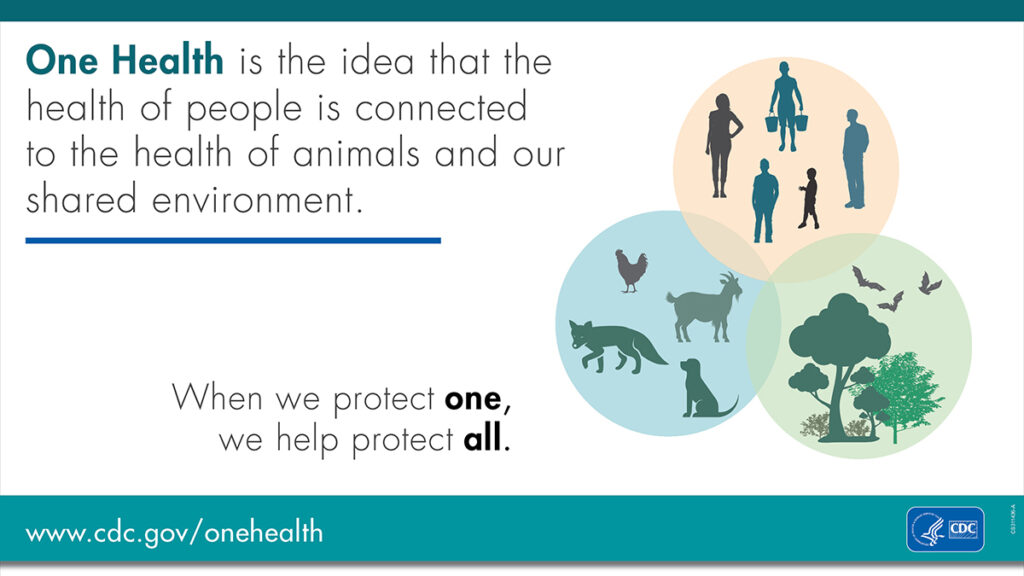Home / Veterinary Wellness / One Health
Home / Veterinary Wellness / One Health

One Health is an approach that recognizes that the health of people is closely connected to the health of animals and our shared environment. One Health is not new, but it has become more important in recent years. This is because many factors have changed interactions between people, animals, plants, and our environment.
Human populations are growing and expanding into new geographic areas. As a result, more people live in close contact with wild and domestic animals, both livestock and pets. Animals play an important role in our lives, whether for food, fiber, livelihoods, travel, sport, education, or companionship. Close contact with animals and their environments provides more opportunities for diseases to pass between animals and people.
The earth has experienced changes in climate and land use, such as deforestation and intensive farming practices. Disruptions in environmental conditions and habitats can provide new opportunities for diseases to pass to animals.
The movement of people, animals, and animal products has increased from international travel and trade. As a result, diseases can spread quickly across borders and around the globe.
One Health issues include emerging, re-emerging, and endemic zoonotic diseases, neglected tropical diseases, vector-borne diseases, antimicrobial resistance, food safety and food security, environmental contamination, climate change and other health threats shared by people, animals, and the environment. For example:
Even the fields of chronic disease, mental health, injury, occupational health, and noncommunicable diseases can benefit from a One Health approach involving collaboration across disciplines and sectors.
The Human-Animal Bond is defined as a mutually beneficial and dynamic relationship between people and animals that positively influences the health and well-being of both.
NOTE: The information contained in these self-help documents is not to be used as a substitute for professional care. Neither the authors nor the Georgia Veterinary Medical Association (GVMA) assume liability for injury incurred by following the information presented in these self-help resources.
Georgia Veterinary Medical Association
6050 Peachtree Pkwy, Ste. 240-381
Norcross, GA 30092
Hours:
Monday - Friday
8:00am - 4:00pm
Ⓒ 2025 Georgia Veterinary Medical Association